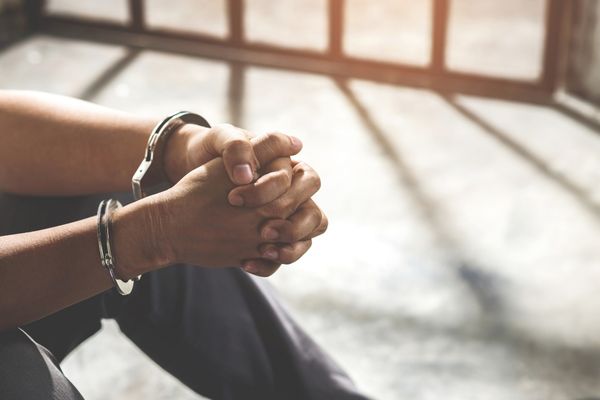
- Details
- By Native News Online Staff
CHICAGO — A newly released report by the MacArthur Foundation shows that Native Americans are incarcerated at a rate 38 percent higher than the national average.
The report, commissioned as a part of the MacArthur Foundation’s commissioned as part of its Safety and Justice Challenge, also found that Native Americans were overrepresented in the prison population in 19 states compared to any other race and ethnicity.
“Like many modern challenges in Indian Country, over-incarceration of Indigenous people is intimately tied to colonial violence and upheld by policies throughout the years,” Dr. Ciara Hansen, currently a clinical psychologist in the Iina’ Counseling Services department at Northern Navajo Medical Center and author of the report, said in a statement. “Paternalistic solutions applied to Native communities often miss the important step of seeking to understand the issue from the community’s perspective. This report offers a starting point for discussion and knowledge sharing.”
Want more Native News? Get the free daily newsletter today.
The report is based on data from several surveys and sources, including the Indian Law and Order Commission, the Office of Juvenile Justice and Delinquency Prevention, and the Bureau of Justice Statistics. Along with aggregating data points, authors examined the issue of Native American over-incarceration with a historical lens, citing federal oppression; codified efforts to eradicate Native culture; and poverty and substance abuse driven by generational trauma.
“It’s not just historical trauma, it’s intergenerational, as well as racial inequities in society,” Dr. Desiree Fox (Bitterroot Salish), another report author, said in a statement. “We needed the historical context (in the report) for that reason. We realized a lot of people didn’t have that historical context.”
Other key findings of the report include the following:
- Native youth are more likely to face conviction as adults for drug-related crimes.
- Forty-five percent of people incarcerated in tribal jails were being held pretrial, and pretrial detention has risen by at least 80 percent since 1999. The average length of stay doubled from 2002 to 2018.
- The most serious offense for 16 percent of people in tribal jails was public intoxication and 15 percent were held for drug-related or DUI charges.
- The 2020 Bureau of Justice Statistics report showed tribal jail incarceration rates have steadily increased by 60 percent since 2000. However, the most recent report from the Bureau of Justice Statistics has shown a significant reduction of incarceration in tribal jails during the COVID-19 pandemic.
The Report authors issued several recommendations to decrease rates of arrest and incarceration of Native people, including empowering tribal justice systems that offer culturally relevant and restorative services and addressing the underlying systemic and societal issues that lead people into the criminal justice system.
The full report can be read here.
More Stories Like This
Native News Weekly (August 25, 2024): D.C. BriefsUS Presidents in Their Own Words Concerning American Indians
Monday Morning (December 8, 2025): Articles You May Have Missed This Past Weekend
Native News Weekly (December 7, 2025): D.C. Briefs
Breaking: Final Defense Legislation Grants Federal Recognition to Lumbee Tribe
Help us defend tribal sovereignty.
At Native News Online, our mission is rooted in telling the stories that strengthen sovereignty and uplift Indigenous voices — not just at year’s end, but every single day.
Because of your generosity last year, we were able to keep our reporters on the ground in tribal communities, at national gatherings and in the halls of Congress — covering the issues that matter most to Indian Country: sovereignty, culture, education, health and economic opportunity.
That support sustained us through a tough year in 2025. Now, as we look to the year ahead, we need your help right now to ensure warrior journalism remains strong — reporting that defends tribal sovereignty, amplifies Native truth, and holds power accountable.
 The stakes couldn't be higher. Your support keeps Native voices heard, Native stories told and Native sovereignty defended.
The stakes couldn't be higher. Your support keeps Native voices heard, Native stories told and Native sovereignty defended.
Stand with Warrior Journalism today.
Levi Rickert (Potawatomi), Editor & Publisher

